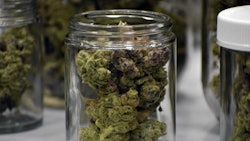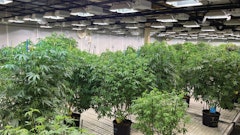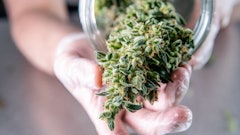
Finding sustainable solutions to packaging can seem daunting with all the regulations the cannabis industry must meet for safety and quality. However, at Missouri-based Illicit Gardens, we’ve found there are several ways to make more sustainable choices with cannabis product packaging without sacrificing compliance, your bottom line, or the quality of your product.
1. Consider reusing over recycling.
Product packaging that customers can repeatedly reuse is less energy- and resource-intensive than recycling. Creating a high-end, commemorative storage container for prerolls that people wouldn't want to throw away is good for the environment and provides ongoing marketing in situ for your brand.
There's a lot of variability in the duration of time in which cardboard can maintain freshness. Factors such as the density and weight of the material, if it has a supplemental coating, and how it's stored internally prior to shipping all play a part. The best solution for sustainability often encompasses a combination of glass, metal and cardboard.
To get your prices the lowest, first identify a supplier that can do it all—so, higher minimums that carry across all your purchases—which should lower your prices and get you better terms. Because this means putting all your trust in one supplier, you'll want to vet the vendors as rigorously as possible.
2. Consumers support businesses with shared values; tell your sustainability story.
In an industry that is becoming saturated with product choices, brands that prioritize sustainable and ethical standards will reap consumer benefits well into the future. To ensure customers know the products are more sustainable, companies can include a QR code on the packaging to a “Linktree” or similar type of page to get people to visit selected information cannabis brands want to highlight.
And for those with sights set on acquisition, licensing agreements will be easier to come by. An environmentally conscious brand addition to the portfolio will often appeal to larger entities looking to acquire cultivation operations.
3. Paper trumps plastic.
Recycled cardboard containers and sustainably harvested paper sources are often frowned upon for not maintaining freshness over a long period. However, high-demand products in larger markets don't need to maintain freshness indefinitely. Fast-moving SKUs can retain freshness long enough to reach the end user, meaning cultivators should consider paper’s potential in sustainable packaging.
Paper generally does have a shorter freshness shelf-life than plastic, which is why we source post-consumer glass, when possible, for our raw flower and concentrates, and reusable packaging like tins for our prerolls. Most markets allow for cardboard packaging, so long as child safety seals and labeling are in compliance. Cartridges, however, are the best product categories for cardboard storage since cartridge hardware is already airtight to some degree.
4. Transition away from single-use preroll tubes.
A single-use preroll doesn't need to go in a heavy-duty, nondegradable plastic container. When pursuing all options to move away from plastic tubes and assessing the feasibility of a company-wide transition, a primary concern for Illicit Gardens was identifying suppliers making glass and metal tins that fit into our existing packaging and labeling systems. Fortunately, it was a surprise to find many readily available options.
5. Glass packaging can add value to premium products.
The weight and texture of glass gives it a higher-end feel than a disposable plastic tube or jar. Though glass packaging isn’t exactly cheap, purchased in high enough quantities, it’s possible to attain a price per unit (PPU) close to that of plastic.
To get glass jar PPUs to a level where they can match their plastic counterparts, we often purchase three to six months of projected packaging inventory at a time. Having worked for multiple years in different markets, we have a high level of trust with our suppliers that helps us negotiate competitive terms. We have local printers in Missouri who work with us on unique label designs and dielines specific to our packaging. All this combined allows us to recoup warehousing fees and save money on any additional taxes and tariffs.
One of the most significant problems we face in Missouri—and many plant-touching companies face in other legal cannabis markets—is recycling glass containers. While glass is recyclable for various post-consumer purposes, many cities do not have adequate facilities or pick-ups for glass products with cannabis residue. Check your state guidelines to see what services are available for your customers’ post-consumer waste.
6. Pick the most sustainable plastics possible.
If you can’t get away from plastics immediately, consider using a more sustainable option. Multiple packaging manufacturers use reclaimed plastics from oceans, for example, to generate more sustainable packaging alternatives. Consider helping fund organizations like Oceanworks that clean the seas while reclaiming.
Remember that implementing even one or two tips can make a big difference. Focus on choosing more sustainable packaging options that are feasible for your organization and take the transition one step at a time.
David Craig is the VP of Marketing for Missouri-based cultivation company Illicit Gardens and Missouri-based retailer From The Earth.






